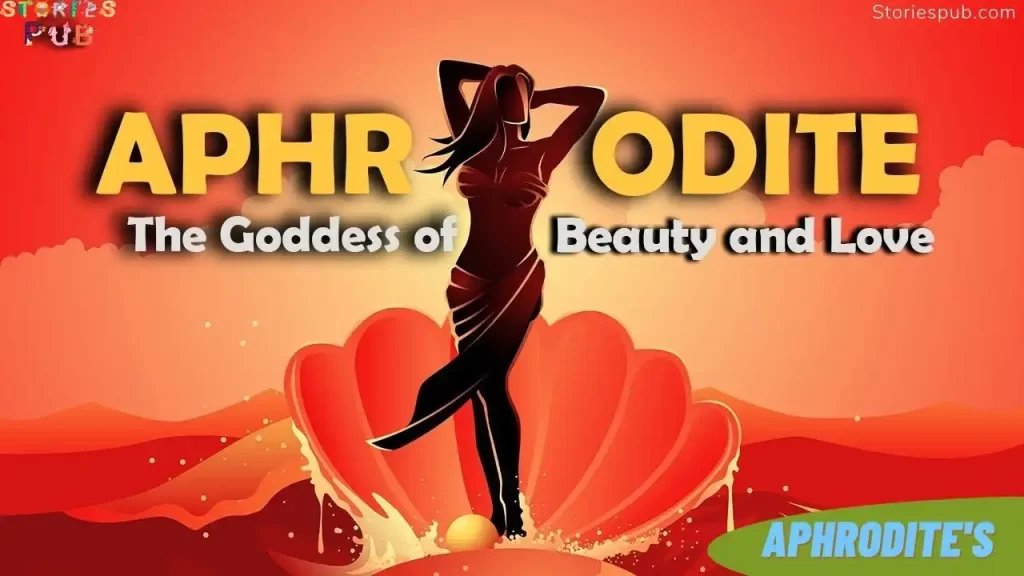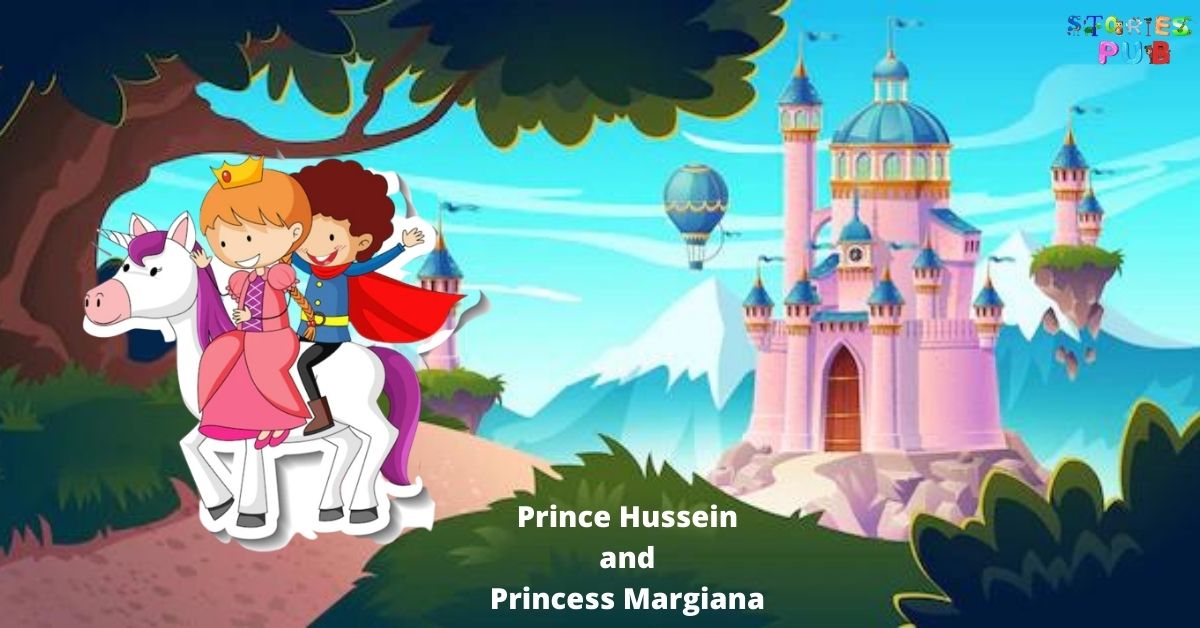Summarize this Article with:
Goddess of Beauty and Passion: Aphrodite Story

Aphrodite is the ancient Greek goddess of love, beauty, pleasure, and procreation. She was born from the foam of the sea and was considered one of the twelve Olympian gods and goddesses who lived on Mount Olympus. Aphrodite was often depicted as a stunningly beautiful woman, and her attributes included the dove, the apple, the scallop shell, and the myrtle wreath. She was married to the blacksmith god Hephaestus, but she had many affairs with both gods and mortals and was often associated with desire, passion, and lust. Despite her promiscuous reputation, Aphrodite was also revered as a protector of love, marriage, and fertility.
How was Aphrodite born?
According to Greek mythology, Aphrodite was born from the foam that formed around the castrated genitals of the sky god Uranus after they were thrown into the sea by his son, the Titan Cronus. The foam then drifted to the island of Cythera, where Aphrodite rose from the sea, fully grown and with incredible beauty. She was greeted by the gods and was quickly taken to Mount Olympus, where she became one of the Twelve Olympian gods and goddesses.
You would also like to Read List of Greek Goddesses
Aphrodite’s origin story is an attempt to explain the natural and mysterious phenomena of the sea, as well as the concepts of beauty and love, which were so important in ancient Greek culture. It highlights the idea that Aphrodite was not a mortal creation but a divine force that was beyond human control and influence.
The meaning of Aphrodite
The name “Aphrodite” is derived from the ancient Greek word “Aphros,” which means “foam.” According to legend, Aphrodite was born from the foam that formed around the castrated genitals of the god Uranus, which were thrown into the sea. This association with foam and the sea gave Aphrodite the epithet “Kypris,” which refers to her connection to the island of Cyprus, where she was widely worshiped.
You would also like to Read Tales of Ancient Greek Heroes
The exact meaning of the name “Aphrodite” is somewhat debated among scholars, but it is generally thought to mean “born of foam” or “born of the sea.” The ancient Greeks thought that Aphrodite was a goddess of the sea and the natural world. Her name shows that she is connected to love and desire, which are fluid and change over time.
Aphrodite Family Background
Aphrodite was the daughter of Zeus and Dione. Aphrodite was married to the blacksmith god Hephaestus, but she was known for having many affairs with both gods and mortals. Some of her most famous love affairs include Adonis, Anchises, and Ares.
You would also like to Read Medusa Story
Aphrodite and Hephaestus had several children together, including the Erotes, who were the winged gods of love, as well as several other children such as Aeneas, Eurymedon, and Priapus.
Aphrodite was also associated with the birth of the goddesses of beauty, the Graces, and was sometimes considered their mother.
You would also like to Read List of Greek God
Despite her many love affairs, Aphrodite was also revered as a protector of love, marriage, and fertility. In ancient Greek culture, she was often called on during wedding ceremonies. She was seen as an important goddess for making sure a marriage is happy and productive.
She had a number of siblings, both full and half.
Aphrodite’s full siblings include:
- Ares is the Greek god of war.
- Hebe: The cupbearer of the gods and the goddess of youth.
- Eileithyia: The goddess of childbirth
Aphrodite’s half-siblings, as children of Zeus, include:
- Apollo: The God of Music, Prophecy, and the Sun
- Artemis: The goddess of the hunt, wilderness, and childbirth
- Athena: The goddess of wisdom, war, and crafts
- Hermes is the gods’ messenger and the patron saint of thieves.
- Dionysus: The god of wine, fertility, and ecstasy
- Hercules: The greatest of the Greek heroes
Aphrodite’s famous achievements and wars
Aphrodite was primarily known as the goddess of love, beauty, pleasure, and procreation, so her “achievements” were mainly associated with these domains. Some of her most famous stories include:
- The Judgement of Paris: In this story, Aphrodite offered Paris, the prince of Troy, the most beautiful woman in the world, Helen of Sparta, as a reward for choosing her as the fairest of the gods. Paris chose Aphrodite, which led to the famous Trojan War.
- The Affair with Adonis: Aphrodite fell in love with Adonis, a handsome young man, and they had a passionate affair. But in the end, a wild boar killed Adonis while he was hunting, and Aphrodite was very sad about it.
- The Affair with Anchises: Aphrodite seduced the mortal prince Anchises, and they had a son named Aeneas, who became a famous hero of the Trojan War.
- The Apple of Discord: In this story, Eris, the goddess of discord, threw a golden apple marked “for the fairest” among the gods, causing a dispute among Athena, Hera, and Aphrodite. Paris was asked to judge who was the fairest, and he chose Aphrodite.
In terms of wars, Aphrodite was not a war goddess per se, but she did play a role in the famous Trojan War. She was the one who offered Helen of Sparta to Paris, which was the cause of the war. Additionally, Aphrodite was often depicted as helping her favourite mortal lovers in battle by providing them with guidance, protection, or victory.
Myths related to Aphrodite
There are many myths related to Aphrodite, as she was one of the most popular and revered goddesses in ancient Greek mythology. Some of the best-known myths associated with her include:
- Birth from the Sea: The foam that formed around the castrated genitalia of the sky god Uranus after his son, the Titan Cronus, threw them into the sea gave birth to Aphrodite.
- Marriage to Hephaestus: Aphrodite was married to the blacksmith god Hephaestus, but she had many affairs with both gods and mortals, which caused tension in their marriage.
- The Judgement of Paris: In this story, Paris, the prince of Troy, is asked to judge who is the fairest of the goddesses Athena, Hera, and Aphrodite. Aphrodite offered Paris the most beautiful woman in the world, Helen of Sparta, as a reward for choosing her, which led to the famous Trojan War.
- The Affair with Adonis: Aphrodite fell in love with Adonis, a handsome young man, and they had a passionate affair. But in the end, a wild boar killed Adonis while he was hunting, and Aphrodite was very sad about it.
- The Apple of Discord: In this story, Eris, the goddess of discord, threw a golden apple marked “for the fairest” among the gods, causing a dispute among Athena, Hera, and Aphrodite. Paris was asked to judge who was the fairest, and he chose Aphrodite.
- The Birth of the Graces: Aphrodite was associated with the birth of the Graces, the goddesses of beauty, charm, and elegance.
- The Affair with Anchises: Aphrodite seduced the mortal prince Anchises, and they had a son named Aeneas, who became a famous hero of the Trojan War.
These myths show the many sides of Aphrodite’s personality and power, such as her beauty and sensual appeal, her control over love and desire, and her connection to fertility and having children.
What role did Aphrodite play in the Trojan War?
Aphrodite played a significant role in the Trojan War, as she was responsible for starting the conflict. The story goes that the three goddesses Athena, Hera, and Aphrodite were quarrelling over which of them was the fairest. To settle the dispute, Paris, the prince of Troy, was asked to judge who was the fairest.
You would also like to Read Zagreus Story
Aphrodite offered Paris the most beautiful woman in the world, Helen of Sparta, as a reward for choosing her. Paris chose Aphrodite, and as a result, he went to Sparta and abducted Helen, taking her back to Troy. This act of kidnapping started the Trojan War when Helen’s husband, King Menelaus, asked his allies to go to war with Troy to get his wife back.
Aphrodite was often depicted as supporting the Trojans in the war, and she was said to have used her powers to aid Paris and other Trojan warriors in battle. However, she was also seen as somewhat fickle, and there are stories of her deserting certain warriors when they needed her help the most.
You would also like to Read Nyx Goddess
In any case, Aphrodite’s role in starting the Trojan War highlights her power over love and desire and her influence over the hearts and actions of both gods and mortals.
Aphrodite’s power and weakness
Aphrodite was considered to be a powerful goddess in ancient Greek mythology, with a number of distinctive powers and abilities. Some of her most notable powers include:
- Love and Desire: Aphrodite was the goddess of love and desire, and she had the power to make anyone fall in love with anyone else and to inspire passion and desire in those she chose.
- Beauty: Aphrodite was known for her incomparable beauty, and she was said to have the power to make herself and others more attractive.
- Fertility: Fertility and having children were linked to Aphrodite, and people thought she had the power to make women fertile and change the way pregnancies turned out.
- Protection of Lovers: Aphrodite was said to protect her favourite lovers, both gods and mortals, and to help them in their battles and struggles.
However, despite her many powers, Aphrodite also had certain weaknesses. Some of these include:
- Jealousy: Aphrodite was prone to jealousy, especially when it came to her lovers and the attention they received from other women.
- Vengefulness: Aphrodite was also known to be vengeful, especially towards those who crossed her or her favored lovers.
- Fickleness: Aphrodite was sometimes seen as fickle, changing her affections and allegiances quickly and without warning.
- Weakness for Love: Aphrodite’s own love and desire sometimes led her into dangerous and compromising situations, making her vulnerable to manipulation and deceit.
Overall, Aphrodite’s powers and abilities show the many beautiful and dangerous sides of love and desire, as well as the power that the goddess of love and beauty had over the ancient Greek world.
What are the symbols of Aphrodite?
Aphrodite was associated with several symbols in ancient Greek mythology that represented her powers and attributes. Some of the most prominent symbols of Aphrodite include:
- The Dove: The dove was a symbol of love and peace, and it was often depicted with Aphrodite as a symbol of her role as the goddess of love and desire.
- The Rose: The rose was another symbol of love and beauty, and it was often used to represent Aphrodite in art and literature.
- The Scallop Shell: The scallop shell was a symbol of Aphrodite’s association with the sea, and it was said to have been used by the goddess to walk on the waves as she travelled to and from her birthplace.
- The Mirror: The mirror was another sign of Aphrodite’s beauty. It was often used to show how vain and attractive the goddess was in paintings and sculptures.
- The Myrtles: The myrtle tree was a sacred symbol of Aphrodite, and it was often associated with love, fertility, and procreation.
- The Girdle: The girdle, or belt, was a symbol of Aphrodite’s beauty and power, and it was said to have the power to make anyone who wore it more attractive.
Who disliked Aphrodite?
In ancient Greek mythology, Aphrodite was not universally beloved among the gods and goddesses. Some of the deities who held a grudge against her include:
- Hera: The wife of Zeus and the queen of the gods, Hera was known for her jealousy and spite, and she was often at odds with Aphrodite over the affections of Zeus.
- Athena: The goddess of wisdom and war, Athena was a chaste and disciplined deity, and she held Aphrodite in contempt for her vanity and loose morals.
- Artemis: The goddess of the hunt, wilderness, and childbirth, Artemis was a chaste and wild deity, and she was often at odds with Aphrodite over the attention of men and the pursuit of love.
- Hestia: The goddess of the hearth and home, Hestia was a chaste and domestic deity, and she was often at odds with Aphrodite over the attention of men and the pursuit of love.
These were some of the most important gods and goddesses in ancient Greek mythology who didn’t like Aphrodite. They show how complicated the relationships and rivalries between gods and goddesses in the ancient Greek pantheon were.
How does Zeus punish Aphrodite?
In ancient Greek mythology, Zeus, the king of the gods, did not often punish Aphrodite directly. But in one story, Zeus punished Aphrodite for getting involved in the lives of humans.
You would also like to Read Hermes God Story
According to the myth, Aphrodite had fallen in love with the mortal Anchises and had a son with him named Aeneas. However, when Anchises bragged about his relationship with the goddess, Zeus became angry and struck him with a thunderbolt, causing him to be lame for the rest of his life. Zeus did this to punish Aphrodite for breaking the rules and getting involved in the lives of people.
You would also like to Read Pan God
It’s important to note that in ancient Greek mythology, the gods and goddesses were often portrayed as capricious and prone to interfering in the lives of mortals, and their punishment was sometimes arbitrary and inconsistent. This myth shows how the gods could punish each other when they broke the rules and meddled in the lives of humans.
Thanks For Reading… Goddess of Beauty and Passion: Aphrodite Story
Hey kids, how much did you like Goddess of Beauty and Passion: Aphrodite Story? Please share your view in the comment box. Also, please share this story with your friends on social media so they can also enjoy it, and for more such stories, please bookmark storiespub.com.
Check out other stories that we have:
- 1. Hindi Stories
- 2. Panchatantra stories
- 3. Moral Stories
- 4. Bed Time Stories
- 5. How to Draw
- 6. Scary stories for kids
- 7. Mythological Stories













